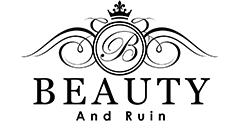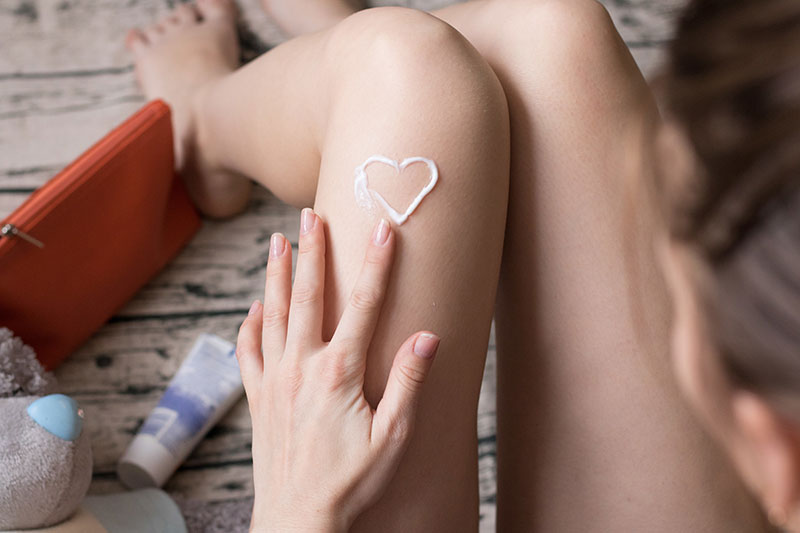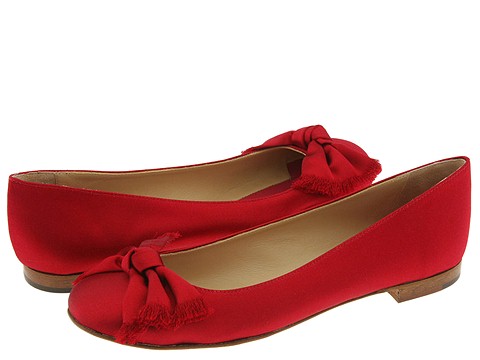You probably think you’re drinking enough water, but chances are you’re not, and drinking enough water is essential for healthy skin.
Try monitoring your intake of water – just water, not coffee, alcohol, juice, tea, or soft drink – and see if you’re getting the two litres most people need.
If you are, five gold stars for you! If not, read on to find out why proper hydration should be part of your skincare routine.
Water and you
The human body is 50-75% water, and it’s essential to keep us healthy. You could survive for weeks without food, but only about 3 days without waster.
Water helps keep your blood flowing, which transports nutrients and oxygen throughout your body. It regulates body temperature, keeps joints cushioned, muscles working, lungs breathing, and organs protected. Even your bones contain water!
Water is constantly leaving your body, through exhaled air, sweat, and urine., The average adult loses 2.5- 3 litres of water every day, and even more in hot weather, when you’re exercising, or when you work in an air-conditioned environment.
An hour of gardening, sweaty exercise, or chasing after the kids can bump your daily water loss up by a couple of cups. Flying is particularly dehydrating. You can lose around 1.5 litres of water during a 3-hour flight.

What happens when you don’t get enough water?
Dehydration hinders your body’s ability to regulate temperature, makes your brain foggy, increases your heart rate, and makes you feel dizzy. Over time, dehydration also affects your skin, giving it a dry, crinkly ‘crepe paper’ look.
Not drinking enough water also increases your risk of kidney stones and urinary tract infections.
To cope with inadequate water intake, your brain tells your kidneys to save water like crazy. So when you do finally get around to drinking water, you’ll retain fluid, which means a puffy face that hides your cheekbones.
The only thing that will turn off the fluid retention reaction is drinking enough water. So even if you’re feeling squishy and puffy, keep on sipping. Your kidneys will soon get things back to normal.
How much water is enough?
Men should drink about 2.5 litres of water per day (10 cups), and women around 2 litres (8 cups). That’s assuming you’re an average weight though. If you want to get more precise, calculate your daily intake: you’ll need about 35 millilitres for every kilogram of body weight.
Drinking enough water needs to become a habit, like cleaning your teeth and eating healthy meals. The easiest strategy is to drink a tall 400ml glass of water with every meal and snack.
If you have three meals and two snacks a day, you’ll hit the mark with water consumption. If water gets too bland for you, herbal teas and other non-caffeinated beverages can also count towards your goal.
Can you have too much of a good thing?
Drinking too little water is a problem for most of us, but some people get carried away and drink too much water. When this happens, there’s a risk of sodium depletion and the dilution of essential electrolytes in the bloodstream.
Symptoms of excess water consumption can include anxiety, headaches, muscle twitching, and weakness. You may also experience low blood pressure, a racing heart, nausea, and cold clammy skin.
So there’s a strong case for sticking to your two litres a day, with a bonus couple of glasses if you’ve been hiking, biking, running or flying.
What about coffee and alcohol?
It’s easy to trick yourself into thinking anything your drinking counts towards your hydration goals, but it’s not so. Alcohol and caffeine act as diuretics, which actually flush water from your body by increasing urination. That means you need to drink even more water to compensate for the loss they incur.
For every mojito or cheeky sauvignon you enjoy, you need another glass of water to offset the negative effects of imbibing. Always ask the waiter for a glass of water when you order your tipple, and be sure to wash down your morning coffee (or three) with a big glass of water.

Is all water created equal?
Tap water
Good old Kiwi tap water is generally safe to drink, however, if you’re on rural tank water a filter may be a good idea to screen out nasties like the parasite Giardia. A reputable water filter company will give you the low-down on what the filter removes and what it leaves in.
Some urban dwellers like to filter their tap water, to remove the chlorine taste. The easy way to do this is to boil your drinking water and keep it in the fridge.
Remember to run your water filter for 30 seconds or so when it hasn’t been used for more than a of hours. This helps to ensure you don’t drink water that’s been sitting around too long. Once the chlorine has been removed from the water, it’s susceptible to invasion by bacteria and other microorganisms.
Bottled water
Bottled water may bring mountain streams and waterfalls to mind, but the reality is usually something less inspiring. A lot of bottled water comes from the same place tap water does – municipal water facilities. It’s usually filtered, purified or distilled with minerals added or subtracted for taste.
If you want water from underground wells, keep an eye out for words like ‘spring’, ‘artesian’, or ‘mineral’ on the label. To be called mineral or spring water, the water must come from an underground source.
Sparkling water is any kind of water that has been carbonated with CO2. If the label just reads ‘sparkling water’ without giving a place of origin, you can assume it’s from a tap.
Can skincare products help?
Skincare products won’t help your body stay hydrated, but they can help you halt and start to reverse any damage dehydration has done to your skin. Try giving your face a spray with the Cucumber + Lettuce Toner from www.okana.co.nz, then seal in the hydration with a day moisturiser or night cream.
- A Guide On How To Host A Memorable Corporate Event - March 28, 2023
- How to Wear Y2K Fashion in 2022 - July 19, 2022
- How to Dress like A Pro: A Fashion Guide for Women Playing Golf - June 27, 2022
- How to Dress Like a Pro: A Fashion Guide for Men Playing Golf - June 15, 2022
- How Do You Get Started as a DJ? - May 20, 2022
- What are the Most Popular Furs for Coats, Jackets and Accessories? - February 28, 2022
- How You Can Look 10 Years Younger - September 30, 2021
- How To Give a Gift in Style: 4 Useful Tips - July 13, 2021
- How to enhance your work-wardrobe - June 3, 2021
- Choosing A Dentist: What You Need To Consider - May 27, 2021





